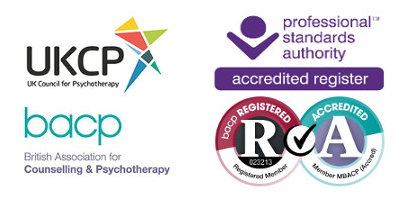Questions & Answers About Therapy & Counselling
Here are the answers to some commonly-asked questions. If you don’t find the question or its answer that you’re looking for, please contact me and I will get back to you within 48 hours.
Questions About Psychotherapy & Counselling
The terms are sometimes used interchangeably. A common way to differentiate them is to say that ‘counselling’ is single-issue, short-term work, whereas ‘psychotherapy’ is longer and more in-depth. In this sense, a psychotherapist’s training takes many years because it requires an understanding of organic, developmental processes, and psychotherapy focuses on clients’ long-term relationship with themselves and others, working with the deeper layers of how a person is present and how that relates to the past, present and future.
Our work is private and confidential, and even the fact that you’re seeing me is confidential. However, I am legally obliged to break confidentiality if I consider you are in danger of causing serious harm to yourself or others, or in cases of terrorism. Also, like all psychotherapists, in order to be transparent about how I work and so as to maintain a healthy perspective, I am regularly ‘supervised’ by another psychotherapist: in that process, clients are not identified. Let me add, my work is covered by the Data Protection Act, and any notes I might keep will not have clients’ names as part of them.
What we talk about depends on what you want to bring to the session.
When asked on his deathbed what was the most important lesson he’d learned during his life, the writer Aldous Huxley said, ‘To be kinder to myself’. So I ask anyone, what’s actually wrong with ‘indulging the self’? Especially when going to therapy can also validly be seen as taking charge and taking responsibility for ourselves. Besides, if we find ways to make our life work better, those round us are quite likely to benefit too!
Dependency is a crucial aspect of how we bond, how we relate to other humans. But there’s a balance between the drive for connection and the drive for independence, and that’s an area we often need to explore and where we can develop our own answers.
Mostly, the answer is No. Advice is usually abundantly available from friends, family, media, the Church, the Government etc. When I refrain from advising, it is not because I am deliberately wishing to frustrate you, though you may feel it that way. Actually, it can feel liberating and affirming being encouraged to find your personal truth and forge your own unique path.
Therapy is not always a comfortable process, so being unhappy or dissatisfied with one particular session, or a run of sessions, may not be an indicator that the process isn’t working.You may find yourself, at a deeply felt level, evaluating whether you are getting what you want or need. I support that, for example by having periodic review sessions.
Some clients give some thought to what they are going to say at their next session. But that’s not a requirement. It’s OK just to come and see what emerges. Some people do like to have ‘homework’, and we can talk about that.
No. I don’t avoid eye contact with you.
Some people get what they need in just a few sessions, whereas many people find it useful to work over a longer period of time. It is very individual, and is between the two of us to decide. You may stop whenever you want to, but we’ll keep it under review. I would class 6-12 sessions as brief or ‘time limited’ therapy. Anything over 6 months is what I would call ‘longer term’ work.
Usually by agreement between us, and with one or more finishing sessions to wrap things up.
Research shows that the two most important elements in the effectiveness of a course of therapy are (a) how motivated the client feels, and (b) to what extent the particular therapist and client ‘click’. The type of therapy is rather less important. In addition, most therapists now work across a range of methods and approaches.
Anything! Human experience is extraordinarily varied, so the following isn’t an exhaustive list, but it may be helpful if I mention some topics that people have presented to me:-
- Stress
- Low self esteem
- Loss & Mourning following the ending of something significant - relationships, career, your youth
- Bereavement & Grief following the death of someone
- Relationship struggles
- Family conflicts
- Addictions
- Compulsive behaviour
- Trauma
- Abuse
- Bullying
- Professional, work and career issues
- Excess anger, losing your temper
- Obsessions
- Phobias
- Sexual difficulties
- Sleep disorders
- Eating disorders
- Powerlessness
- Lack of control
- Anxiety
- Panic
- Lack of confidence
- Feeling directionless or helpless
- Depression
- Frustration, stuckness, lack of satisfaction
- Burnout
- Ageing
- Dealing with racism
- Psychosomatic symptoms - ME, CFS (Chronic Fatigue Syndrome), IBS (Irritable Bowel Syndrome)
- Behaviour change
- Unresolved issues from the past
- Boarding school recovery
- LGBT issues
- Lack of assertiveness
- Loneliness, isolation
- Major life events
- Lack of optimism
- Transitions, and managing change
- Overwhelm, loss of boundary
- Feeling ill at ease
- Feeling disconnection, lack of meaning, invisibility or formlessness
A dream is a fascinating, alive, rich source of information, full of possibilities for change and evolution. It is the body speaking to us. In preference to interpreting the symbolic content of dreams, I tend to work with them in a formative way, with a particular focus on what is growing or trying to take shape.
Aaron T. Beck devised CBT in the 1960s, to help us identify irrational, unhealthy thoughts and refute them. Useless or frustrating and unproductive behaviours are addressed through techniques such as modelling, role play and reinforcement strategies. The underlying principle is that, for better or for worse, children learn by observing and imitating, and poor mental health is a function of having observed and imitated poor role models.
I generally find CBT methods work best with anxiety attacks. My style of therapy is quite behaviourist in any event. Thus, in other words, CBT is integrated into the range of tools and modalities I draw on to meet any particular person’s needs.
Questions About Booking Your Session
Questions About Fees
£120 per 50 minute session.
There is a 5% DISCOUNT for ADVANCE payment for a block of 4 sessions or a 10% DISCOUNT for ADVANCE payment for a block of 8 sessions.
All fees are inclusive of VAT.
Direct bank transfer, or cash or cheque. I don't have the facility to accept credit cards at present.
For the first session, please pay me in advance of the appointment.
After that, I will email you a monthly VAT invoice at the end of each month. The invoice is due for payment straightaway on receipt.
I offer 5% discount on any pre-paid block of 4 booked sessions or a 10% discount on any pre-paid block of 8 booked sessions.
Unfortunately, due to the high volume of clients requiring therapy, I do have to charge in full for appointments missed or cancelled for any reason, unless you give me at least 72 hours prior notice.
Questions About Marcus
What’s my next step?
If you wish to talk about what you are looking for and/or arrange a first session, please get in touch by telephone or email or use the contact form.



